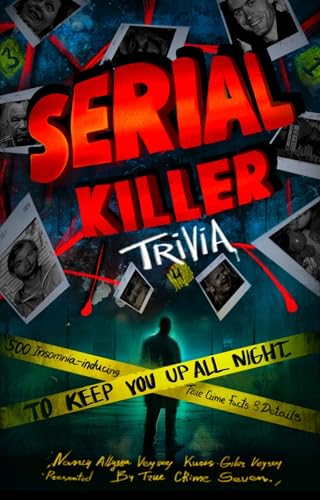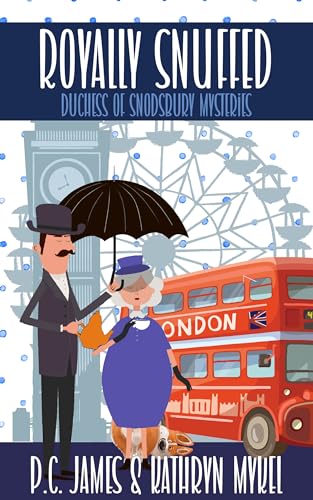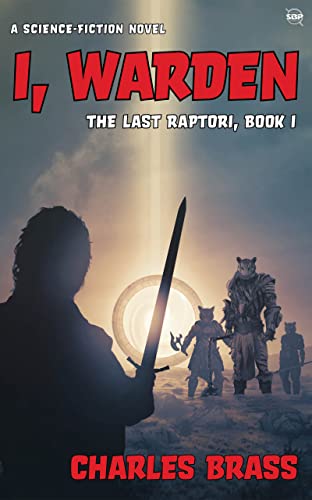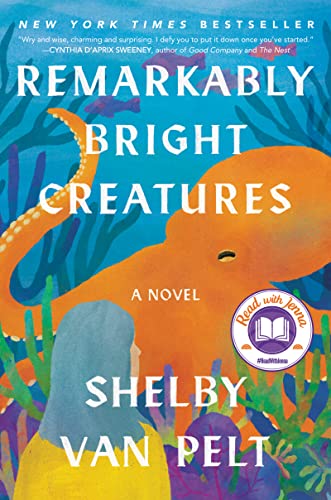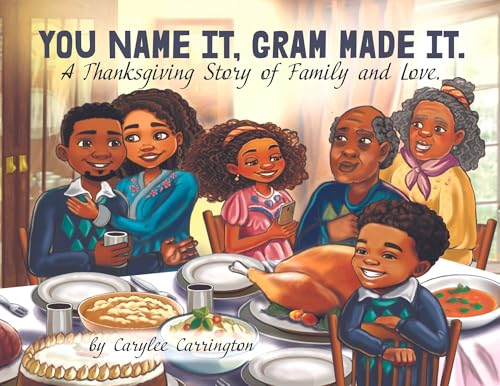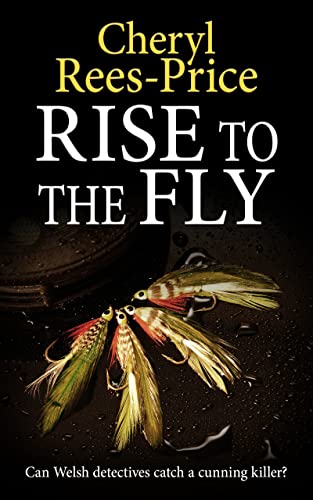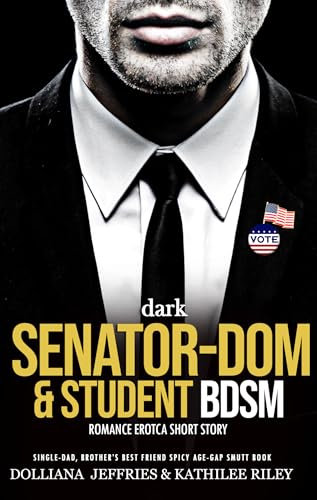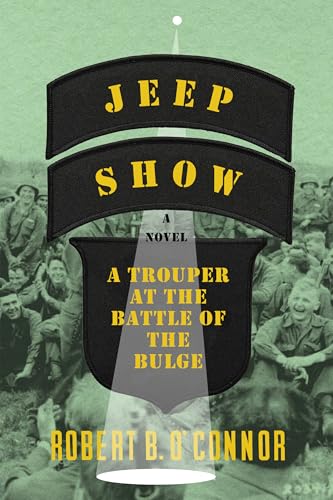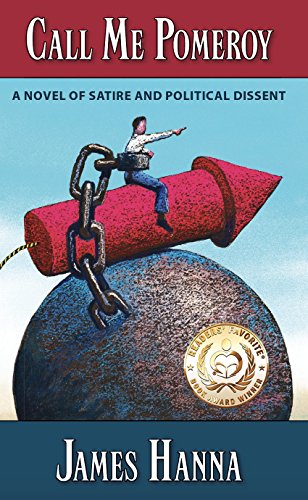Mistletoe and Murder in Las Vegas (Affairs to Remember Book 1)
by Colleen Collins
All 31-year-old, Las Vegas criminal lawyer Joanne Galvin wants for Christmas is a client—or three—so she can make ends meet. Instead she’s roped into defending the notorious, alleged Timepiece Arsonist; tracked by a hunky special agent and his arson dog; and chased by a serial killer. Just when her life is starting to feel like the Nightmare Before Christmas, she receives an unexpected gift that offers hope that this holiday season could be the most wonderful time of the year…maybe even for years to come.
A heartfelt, humorous, romantic-mystery story about a down-on-her-luck lawyer, a special agent visited by the past, and an arson dog named Maggie who join forces to rescue the holiday spirit!
Click here to visit Colleen Collins’ BookGorilla Author Page
One
November 5, 2015
Eighth Judicial District Court, Courtroom 14A
Las Vegas, Nevada
Judge Darren Fields, his dark-frame eyeglasses in stark contrast to his mop of snow-white hair, peered down at public defender Joanne Galvin as if she were an alien with a law degree. “You just told the jury that the DA plays fast and loose like a gunslinger. Has defense lost her mind?”
Whispers rippled throughout the courtroom. Someone stifled a laugh.
Locked in a stare-down with the judge, Joanne had the irrational urge to answer “yes.” And she knew exactly when she’d lost it, too—at one o’clock this morning when she’d found in the DA’s discovery a buried reference to someone who had seen “Tater” drinking a beer “that night.”
She’d missed the significance of that reference the first time she reviewed those pages, but when she read it again at one this morning, her instincts went on orange alert. This “someone” had to be the key witness who could finally prove her client, twenty-year-old Sebastian Vaughn, had been at a dive bar thirty miles away and not at the scene of the attempted murder the DA was trying to hang on him. A quick call to Sebastian’s mother confirmed that years ago some of his buddies had called him “Tater,” slang for home run as he had been a star on the high-school baseball team.
By then it was nearly two a.m. At nine o’clock sharp, she and the DA would begin presenting their closing arguments in the trial, during which neither were allowed to enter new evidence, such as this witness. Despite the ungodly hour, Joanne called the judge and begged him to please re-open the trial based on what she read. He grumpily agreed to meet her and Sam Burnette, the DA, in his chambers precisely at eight o’clock.
A meeting that had gone about as smoothly as a Three Stooges farce.
Judge Fields had alternated between swilling coffee and popping antacids while Sam Burnette furiously accused Joanne of obstructing justice by purposefully waiting until the night before closing arguments to read parts of discovery.
She countered that the DA had played dirty by doing a discovery dump on her—referring to the hundreds of pages of police reports, interviews and other documents that the DA’s office provided the defense during the pre-trial phase. Only Esmeralda—an elderly Vegas fortune teller who regularly swindled tourists on the Strip—and Her Crystal Ball could have divined the hidden meaning of that purposefully vague reference on first read-through.
After that the judge quietly belched and cleaned his eyeglasses for several thoughtful moments. Putting his glasses back on, he said the mere inference of evidence, obviously favorable to the defense, was insufficient reason to upset the orderly administration of justice in his court. Therefore he ruled the trial would not be re-opened.
Donning his judicial robes, he griped about his lack of sleep and stated he was not in the mood to put up with any more tomfoolery.
Now, at 10:00 a.m., Joanne stood in the well of the courtroom, eye-locked with the judge who frowned so hard his bushy white eyebrows resembled a puffy storm cloud over his dark eyes.
She did her best to look dignified despite the tension and her feet, which were aching in a pair of new, insanely-high heels that she impulsively decided to wear thinking they added some noble height to her five-two. Like that mattered now.
“Miss Galvin,” the judge finally said. “That comment comes darn close to violating my ruling during a trial, which is direct contempt of court for which I could send you to jail. Like this very instant.” He snapped his fingers.
Her insides shriveled as the stocky courtroom deputy lumbered toward her, his rubber-soled shoes squeaking on the marble floor.
“Deputy, I did not order you to arrest her!” The judge pointed to the spot where the deputy had previously stood. As he squeaked back across the floor, the judge sighed heavily and turned to the twelve wide-eyed jurors. “I direct the members of the jury to disregard the defense’s statement….”
Joanne glanced at her investigator and best friend, Gloria Falco, who sat at the defense table wearing an I-can’t-believe-this-crazy-shit expression. They had been friends since their first day of work at the Clark County Public Defenders’ office, almost five years ago. Joanne, then twenty-six, had recently passed the bar exam and was beginning her career as a lawyer. Gloria, a year younger, had worked as a private investigator in Brooklyn for her dad, the legendary private eye Sal Falco. Shortly after he died, she relocated to Vegas where her brother, a talent manager, lived.
For court Gloria always toned down her rock-n-roll, tough-chick look. Today she’d feathered her short dark hair rather than spiked it, and ditched her usual tight jeans, form-fitting T-shirt and badass boots for a powder-blue pantsuit and flats.
Next to Gloria sat Sebastian wearing a mauve shirt, black tie and gray suit his mother picked out for him at Goodwill. Last June his life was unfolding—he’d celebrated his twenty-first birthday, landed a valet job at The Tropicana, and fell in love for the first time with a girl named Nina. All that changed on July 3 when the police arrested him for attempted murder. Sebastian matched eyewitnesses’ descriptions of the person who shot at a man in a grocery store parking lot. Now, if found guilty, he faced spending the next twenty years of his life in prison.
With a small shake of his head, Sebastian mouthed F-M-L—Fuck My Life, street slang expressing his incomprehensible despair.
His anguish broke her heart. Joanne had not become an attorney because she had political aspirations like Sam Burnette or viewed lawyering as a get-rich career. As corny as it sounded, she went to law school to effect justice. Considering how freakishly difficult achieving that simple goal turned out to be, maybe Judge Fields had been right to ask if she’d lost her mind.
The judge finished giving directions to the jury and turned his disgruntled attention to her. “Defense may continue its closing argument.”
She crossed to the jury box, fighting the urge to wince with each toe-pinching step, while scanning the jurors’ expressions. An elderly woman with pinkish hair gave her a you-poor-thing look. A thirty-something guy, who obviously believed a man could never wear too much leathery-scented cologne, eyed her with suspicion. The rest of the them appeared to be confused, nervous or both.
These twelve people would decide Sebastian’s fate without knowing the whole truth. Justice would not be served—it would be trampled on. Then kicked a few times just in case it hadn’t gotten the message.
It hurt and enraged her that an innocent young man would go to prison for a crime he did not commit. Rules and procedures were a necessary part of fair due process, but something was dead wrong with the system when it sabotaged the very spirit of the law.
Which left her at a fork in the road of justice. Play nice and watch her client go to prison, then work her ass off appealing the case, which could take years. Or she could forge her own path and violate a judge’s ruling, which promised a rocky ride.
She smiled politely. “Ladies and gentlemen of the jury, I was wrong to say what I did about the DA. The simple truth is Sam Burnette tried to hide evidence that proves Sebastian is not guilty.”
“Stop, Miss Galvin!” the judge bellowed, followed by loud bangs of his gavel.
Conversations erupted in the gallery. Jurors’ wide-eyes gazes bounced back and forth between her and the judge.
She turned around slowly, her hands clasped tightly, ready to face his wrath. Yes, she had broken a rule. This time Judge Fields might really sentence her to a day or two in jail, a miniscule punishment compared to the decades an innocent man would spend in prison for a crime he didn’t commit.
Judge Fields sighed heavily and set down his gavel. He looked toward a far window where the pale blue sky showed with a disgruntled look, as if there were surely more intelligence in the entire cosmos than in his courtroom.
He lowered his gaze to Joanne. “Miss Galvin, you’re a talented lawyer, but you have the preservation instincts of a lemming. Based on your comments and your disrespect for the court’s direct order to you, I find you in contempt. One-thousand-dollar fine, and you should count yourself lucky I didn’t throw in a night in jail as well. No stay on the fine, which must be paid within forty-eight hours. After I again direct the jury to disregard defense’s comments, I am sending the jurors home for the day, and I strongly suggest, Miss Galvin, that you designate another lawyer to finish your closing argument tomorrow.”
She remained where she was, vaguely aware of the scuffling of jurors’ feet as they stood. The court clerk, reeking of cigarettes, ambled past looking like a low-rolling storm cloud in her shapeless black dress.
It wasn’t the best day Joanne had ever had in court. In fact, it was the worst—with the time a client hurtled the defense table and tried to slug a juror because he was “looking at me funny” running a close second.
But on the bright side, she had two things in her favor—she would not be looking at the world through bars, and the judge had only suggested she find a replacement.
Which meant she would be back tomorrow to give her closing argument. The thought made her smile.
Oh, wouldn’t Judge Fields just love that.
***
An hour later, Joanne walked into the office of Roger Montgomery, who sat at his desk reviewing a document. Two months ago he had been promoted to chief deputy defender at the Clark County Public Defenders’ office, making him second-in-command to Chief Defender Paul Ochs.
Roger also happened to be her live-in boyfriend for most of the past four years. Because it presented a conflict of interest for her manager to also be her significant other, she was being transferred to the defenders’ appellate division in a few weeks. She wasn’t wild about spending her days at a desk writing and conducting research, but at least it was short-term. Everybody expected the governor to appoint Paul to a district judgeship next year, after which Roger would fill Paul’s slot, and Joanne would return to trial work.
She slumped into one of the leather-upholstered guest chairs—a big step up from the defenders’ cheap plastic ones that looked like old lawn furniture and probably were as they tended to smell like baked dirt.
She dropped her briefcase and purse onto the carpeted floor.
“Judge Fields just found me in contempt,” she muttered, tugging off a high heel. “And hit me with a thousand-dollar fine.” The shoe hit the carpet with a soft flump. “I should never have worn these…my feet were screaming for mercy all morning.”
Roger looked up. At thirty-five, he still had boyishly clean-cut looks that reminded her of Jake Gyllenhaal in his earlier romantic comedies before he started playing psycho-killers.
“I know,” he said.
After removing her other shoe, she groaned with relief. “How did you know? I have a similar pair that are super-comfortable, but these are like matching medieval torture devices.”
“I meant I know that Judge Fields charged you with contempt.”
She waited for I’m sorry that happened, baby, but he said nothing. Probably didn’t want somebody walking past his open door and overhearing. Roger was Mr. Office Decorum these days.
“Gloria told you?” she asked.
His smartphone beeped, signaling an incoming text message, and he made a hold-on gesture. After reading it, he placed the phone screen down on his desk and redirected his pale brown eyes on her. “Sam Burnette called Paul, who then called me.”
“Burnette, what a tattletale.”
In the last three years, she had won two out of four cases against the DA, and would have won more if he hadn’t pulled some slick courtroom tricks. To be honest with herself, Judge Fields couldn’t justify re-opening the trial based on her inference alone—he needed the evidence to back it up—which she could have had weeks ago if Burnette hadn’t buried that damn reference. She dreaded going to trial with him again.
“He wasn’t tattling on you, it was a business conversation.”
“The DA reporting on me to the head of the defenders’ office is like a guard gossiping with an inmate.”
“Bad analogy.”
“Okay, the chief inmate. Anyway, you were in the shower when I left this morning, so I didn’t get to tell you that late last night while I was wading through Burnette’s discovery dump—more like a trash heap—I found a reference to a key witness buried so deep I half-expected to find Jimmy Hoffa’s body, too.”
“Joanne, that’s enough.”
His sharp tone took her aback. Plus, he rarely called her Joanne…in private, anyway. His nickname for her was Amanda, the lawyer Katharine Hepburn played in the film Adam’s Rib, because of Joanne’s tendency to “showboat” in the courtroom the way Amanda did in in the movie. Sometimes she playfully called him Adam, the lawyer-husband Spencer Tracy played in the film. It was all in fun, but to her it foreshadowed their future as a husband-and-wife law practice, which they talked about. They didn’t actually use the M-word—marriage—but they always referred to it as Montgomery and Montgomery, LLC, the second Montgomery obviously being Joanne as he was an only child and his father, a banker in Rhode Island, was planning to retire in a few years.
She missed chatting about their law firm. Missed a lot of things, actually. They used to joke about sharing “out of order” hair—Roger’s was wavy and dark, hers insanely curly and auburn—but recently he started wearing a stylishly choppy style calculated to look messy, using some kind of gel that smelled like musty apricots. Dressed differently, too, as if he were auditioning for the lead in the next James Bond movie. Today he wore a tailored gray suit accessorized with a pale-blue silk tie and a matching folded pocket square, which he called a pochette. Roger, whose French vocabulary until recently had consisted of croissant and quiche, now tossed out French terms for things like handkerchiefs.
Things hadn’t been the same since his promotion. She kept telling herself the disharmony was due to the stressors in his new job. Besides handling his own legal cases, he also managed forty overworked defense lawyers, who jokingly called this department Lawmageddon as each juggled over 300 criminal cases annually, most from Las Vegas, a city with one of highest crime rates in the nation. She’d figured as he grew more comfortable in his new job, their relationship would get back on track. Instead, he seemed more distant and preoccupied. God, she missed being Amanda.
Walking around to the front of his desk, he said, “Judge Fields thinks you’re a good lawyer.”
“Good?” She watched Roger sit on the edge of the desk and adjust a gold cuff link she hadn’t seen before. “I’ve won more cases than any other public defender–”
“Last year, okay. But not the year before, and there’s no final tally for this year, so let’s not play the numbers game.”
She pretended the jab didn’t hurt. “So, let’s see…the DA complained about me to Paul, who talked to Judge Fields, who said I’m a good lawyer…were any other compliments tossed my way?”
Her half-hearted attempt at levity bombed on takeoff. Fighting the urge to clear her throat, she held his gaze for several moments, trying to decipher if the look in his eyes was disappointment or irritation.
“Paul’s concerned that your fixation in this case is undermining your legal representation.”
“He called my defense a fixation?”
She stopped herself from adding that Paul’s concern wasn’t about her legal abilities, but that she had embarrassed him. He was all about his reputation as a soon-to-be judge.
“I can’t remember the exact word,” he said dismissively. “You get the gist.”
She caught the familiar scent of his sweet-peppery cologne, the scent conjuring memories of steamy nights in bed…and it saddened her to not remember the last time they had made love.
“The stress of this trial has obviously triggered your dyslexia.” He said it with zero inflection, like a tired bingo caller at the end of his shift. “Which is why you missed the reference in the DA’s discovery the first time you read it.”
After her third grade teacher noticed Joanne occasionally struggling with reading and interpreting numbers, she had been diagnosed with mild dyslexia, which meant her symptoms simmered rather than boiled. Over the years she’d learned coping techniques, such as asking people to repeat instructions or counting on her fingers to keep track of tasks. In the last few years she sometimes used apps on her smartphone and computer that quickly converted text into spoken words.
Roger knew all that. Also knew she managed the symptoms so well that they rarely flared, and only then during times of high stress. But blaming her dyslexia for missing that buried reference was a cheap shot.
Just the way Burnett’s discovery dump had been a cheap shot.
Her insides tightened as she sensed murkier depths to this chat, but the reasoning escaped her. A direct contempt charge was basically about maintaining order in the courtroom—the judge as parent putting the lawyer as child in a time-out for misbehaving. Minor stuff compared to a lawyer violating legal ethics or breaking a law.
“What’s this conversation really about?” she asked quietly.
Roger, his face flushed, paced while jabbering about her being an hour late last spring for a hearing in another judge’s courtroom. “You and I both know the stress of that Oliver case triggered your symptoms, one being a lack of directional orientation, which is why you got lost driving and were late. Because of your tardiness he had to reschedule a trial, which resulted in a serious conflict between the defenders’ office and Judge Stein.”
She agreed with him that her dyslexia had surfaced during that time—evidenced by her struggling with directions while driving—but reminded Roger that she had called Judge Stein before the hearing started. “His clerk said the judge’s cases were running late, and if I got there within an hour, no problem.” She paused. “I need a reality check here. If being late caused a serious conflict, why didn’t I hear about it back then?”
“I’ll give you a reality check,” he snapped. “Paul wants you off this case. Bad enough that you disrespected Stein’s courtroom, but calling Judge Fields in the wee hours, at home? Then willfully violating his order? You’re out of control, Joanne.”
No, you’re out of control. Under the eerie-blue fluorescent lights his reddish face appeared almost mauve, and his hard frown cut deep stress lines between his eyebrows. His edginess unnerved and distressed her as she vaguely realized the boyish Jake was no more.
Taking in a slow breath, she refocused her thoughts on Sebastian and tomorrow’s closing argument. A lawyer told stories to the jury throughout a trial, then finally asked them for justice during closing argument. No DNA, photographs or other evidence tied Sebastian to the crime, only that he matched the general description given to police by eyewitnesses. Without her guidance, twelve people might wrongly convict an innocent young man.
Underneath all of Roger’s ladder-climbing, yes-man-to-Paul crap, he knew her moral compass pointed to fair play. Which meant she had a chance to convince him to convince Paul to keep her on this case for just one more day.
“I realize you must comply with Paul’s decisions because a corporation’s strength, accountability and reputation lie in its chain-of-command.”
“You’re showboating, Joanne. I’m not a jury.” He sat on the edge of the desk and crossed his arms.
She gave her best I’m-humbled-by-the-truth nod. “Then let’s skip the icing and go right to the cake. I know this case better than anyone. I have spent at least sixty hours conducting interviews, plus reading that pile of…discovery at least twice, some parts more. Since taking this case, I have not gotten lost once while driving, had difficulty telling the time or confused my left hand with my right. Last, I promise to abide by Judge Fields’s ruling because I want to work within the system to effect justice for Sebastian.”
“No.”
His short, snappy response took her aback. “No discussion?”
“No.”
The urge to argue was almost overwhelming but she forced herself to stay quiet for a few seconds, determined to hold onto some shred of dignity.
“You’ve already replaced me,” she said tightly.
“I’ve assigned Eddie to do your closing. It’s for the best…you’ve probably lost all credibility with that jury.”
“Eddie can’t litigate his way out of a sandwich wrapper. He pleads out cases and negotiates lousy deals.”
“It’s out of your hands, Joanne.”
“Just…just stop already with the Joannes, okay? This conversation is crappy enough without acting as if Amanda died.”
They sat without speaking, the only sounds the murmur of conversations and occasional laughter from other offices. Roger brushed something off his pants, crossed his arms again and met her eyes. That look chilled her to the bone. After all the years she’d known him, it was like staring into the eyes of a stranger.
Dyslexia got a bad rap, but it had some benefits, too. Like being able to read people, which many dyslexics did quite well after years of relying on visual cues to compensate for words. Roger knew this, of course, which was why he held himself stiffly, a bland look on his face.
She still read him loud and clear. The stronger scent of his cologne told her he was sweating from nervousness, and his crossed arms were a defensive shield to hide something or block some kind of perceived attack…she guessed the latter as his hands were fisted, as though steeling himself for an argument.
She couldn’t ignore her own body signals, either. Her heart was racing as if trying to outrun even more bad news…which caught up with her anyway. It was the only logical conclusion to this stupid, painful episode.
“You’re firing me.”
He began talking fast, gesturing. “Paul wants your resignation, effective immediately…”
Paul wants…Paul says…
She scanned the legal documents, calendar, coffee cup on his desk, pausing on a Pelikan fountain pen she’d given him for his birthday two years ago, before moving on to his smartphone that lay screen down. She wondered who had texted him.
Next to the phone was an almond.
Roger was allergic to nuts. She once rushed him to ER after he accidentally ate a dish at a Chinese restaurant that contained crushed Brazil nuts.
She recalled seeing a jar of almonds on someone’s desk this last week…right, that new public defender, Tiffany something. Blonde, slim, with a dazzling smile that screamed porcelain caps. She’d started at the PD’s office a few months ago…liked to sprinkle her conversations with French words…
Joanne felt sick to her stomach.
Oh, God. Roger was having an affair…right under her nose.
How dumb could she be to miss the signs? No, correct that. She had seen the evidence, but some part of her refused to believe his late nights at work, or leaving the room to answer his phone or dressing differently meant he was…
Screwing Tiffany.
She couldn’t breathe, couldn’t think. Tears stung her eyes, but no way in hell would she let the bastard see her cry. Let him see how much she had loved and believed in him…in their relationship…in their future…
Despite her legs feeling as if they’d vaporized from underneath her, she forced herself to stand.
“Joanne? You okay?”
She lurched forward like some kind of robot and jerkily plucked the almond. Leaning against the desk for support, she stared at the demon nut, the killer piece of evidence, for several long, excruciating seconds.
“What are you doing?” Roger whispered.
Fighting the urge to shove it up your nose. But with her luck, Eddie the Incompetent would defend her on the attempted murder charge, and she’d end up rearranging books in the prison library for the next twenty years.
So instead of giving into her homicidal desires, she held the almond aloft as if it were Queen Amanda’s miniature sword while she rasped Tiffany’s name, unintelligible as she was gasping for breath while trying to speak…
Overcome by a sudden desire to retch, she swiveled and walked a few steps, grabbed her purse and briefcase and marched out the door.
Minutes later, as she stumbled through the building lobby and felt the cold linoleum through the bottom of her stockinged feet, she realized she had forgotten to put on her shoes.
Pushing open the glass door of the building, she sucked in the brisk November air, determined to make it to her car before she had a massive breakdown.
Walking down the sidewalk, the world blurry through her tears, she held her head high. A five-two woman who didn’t need any damn heels to walk tall.
|
|



